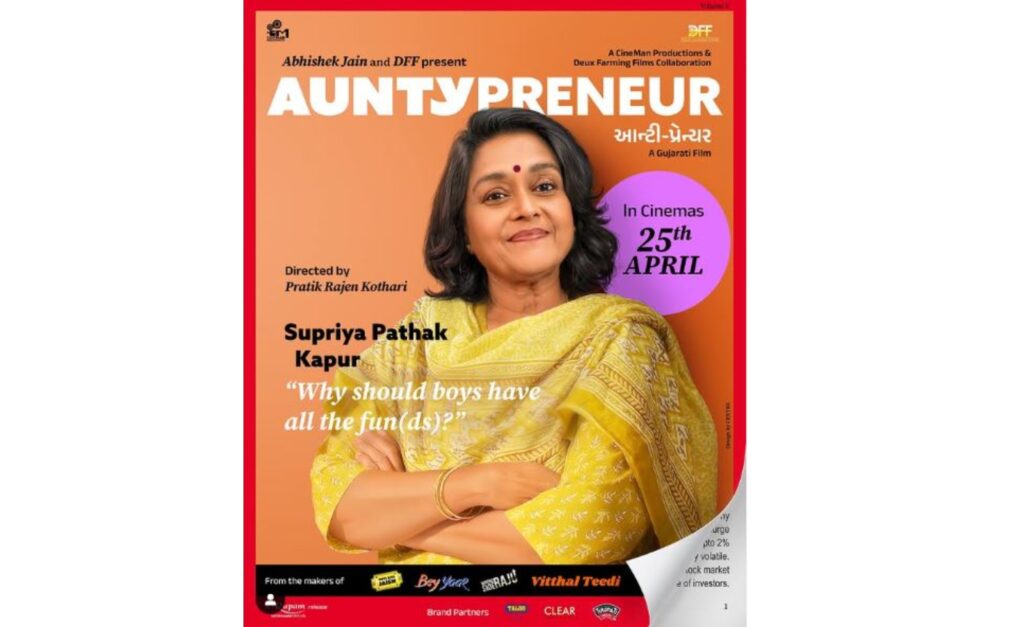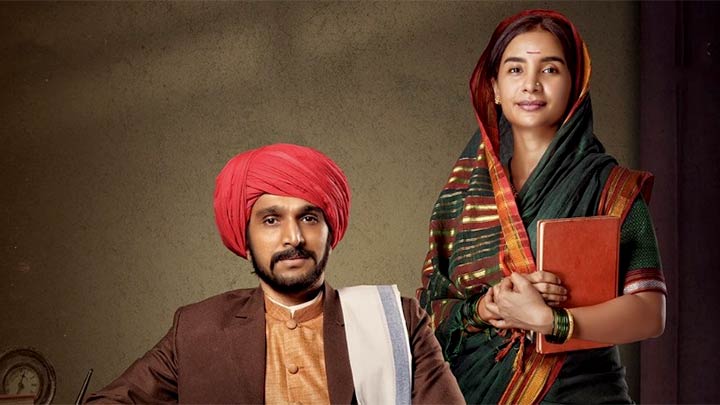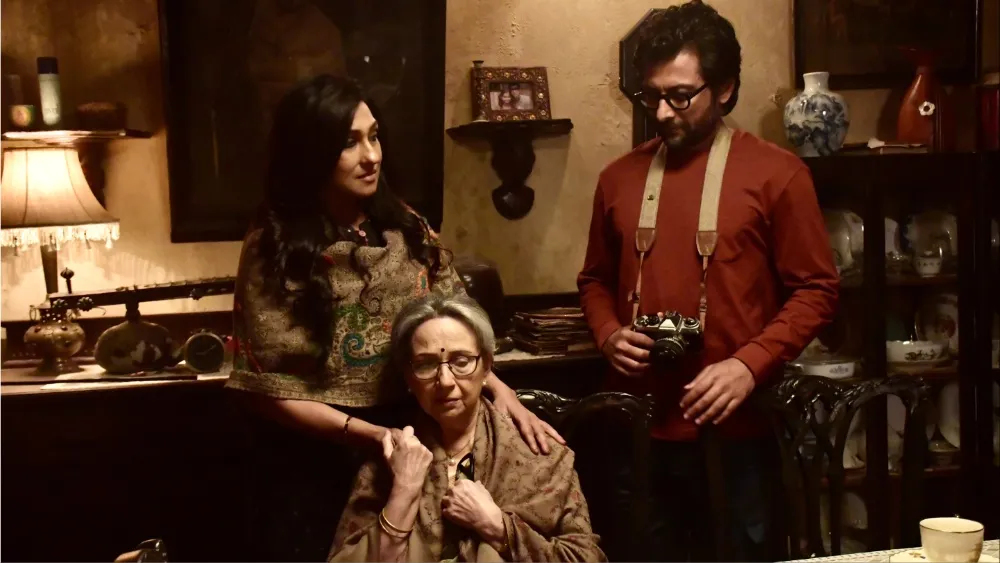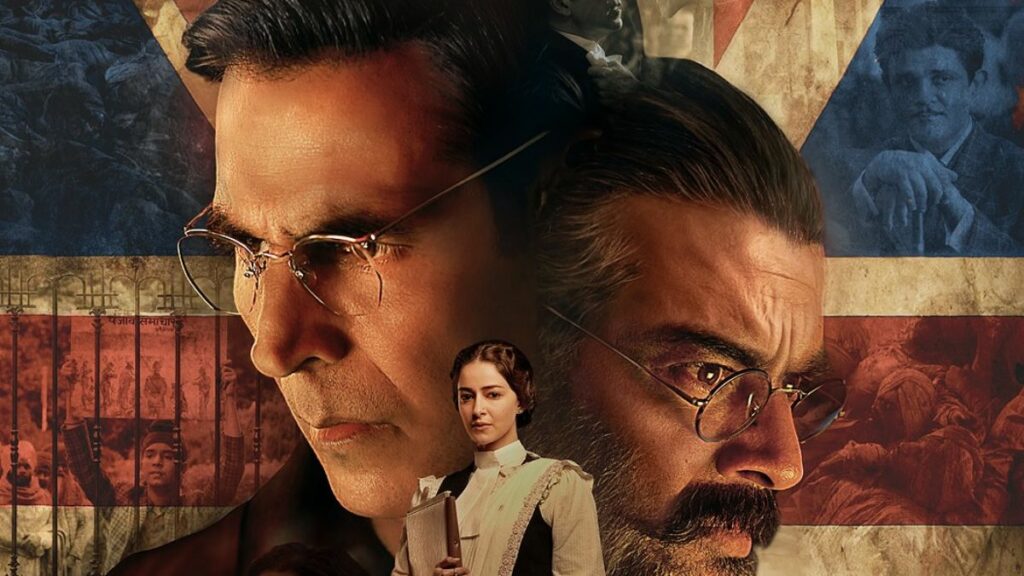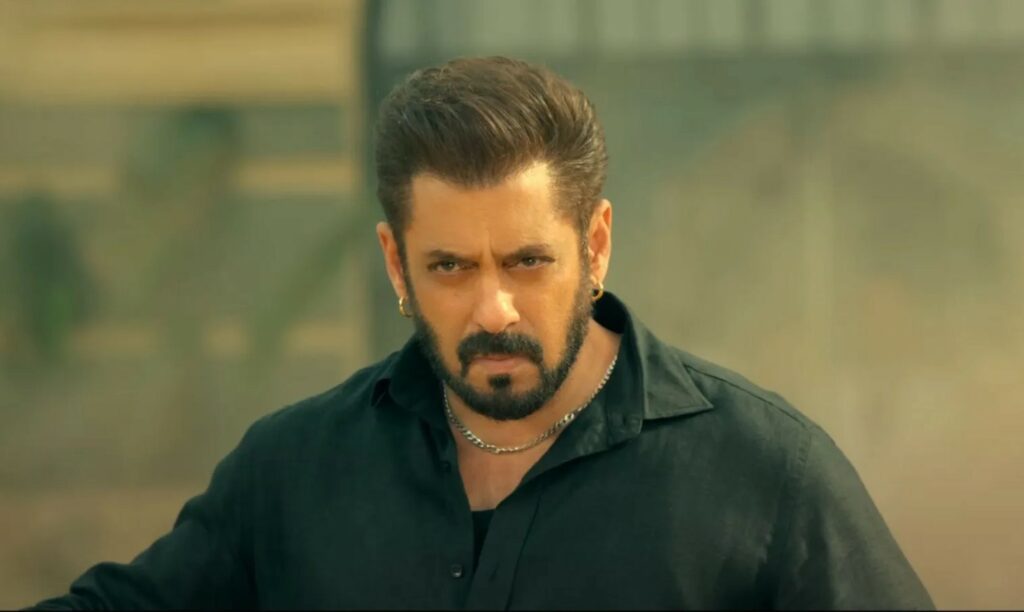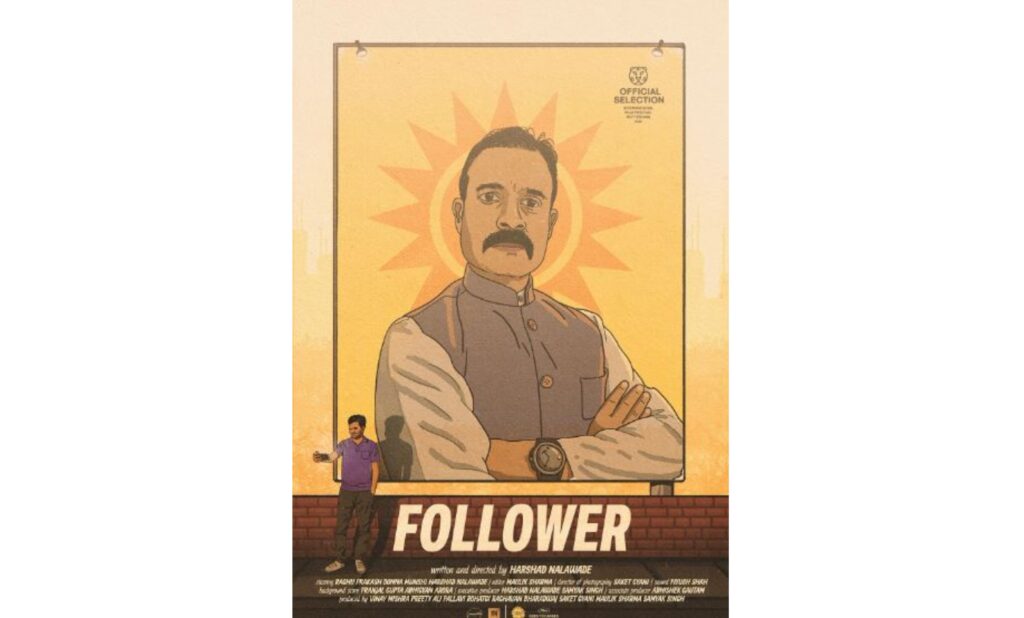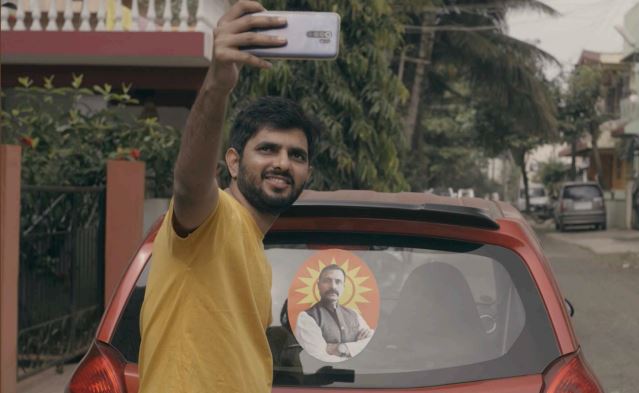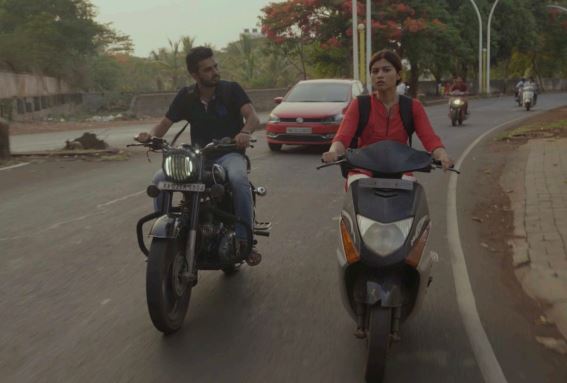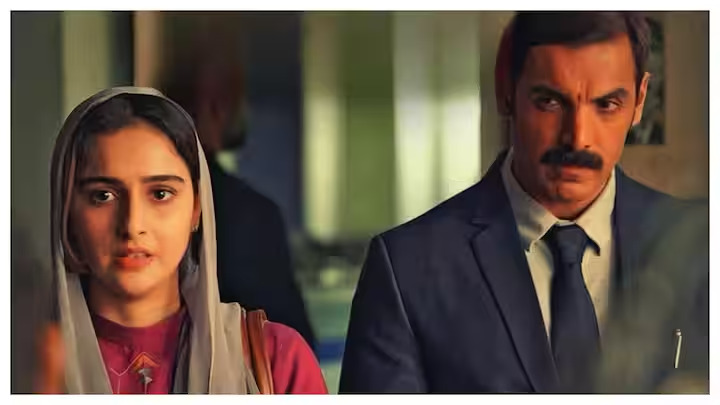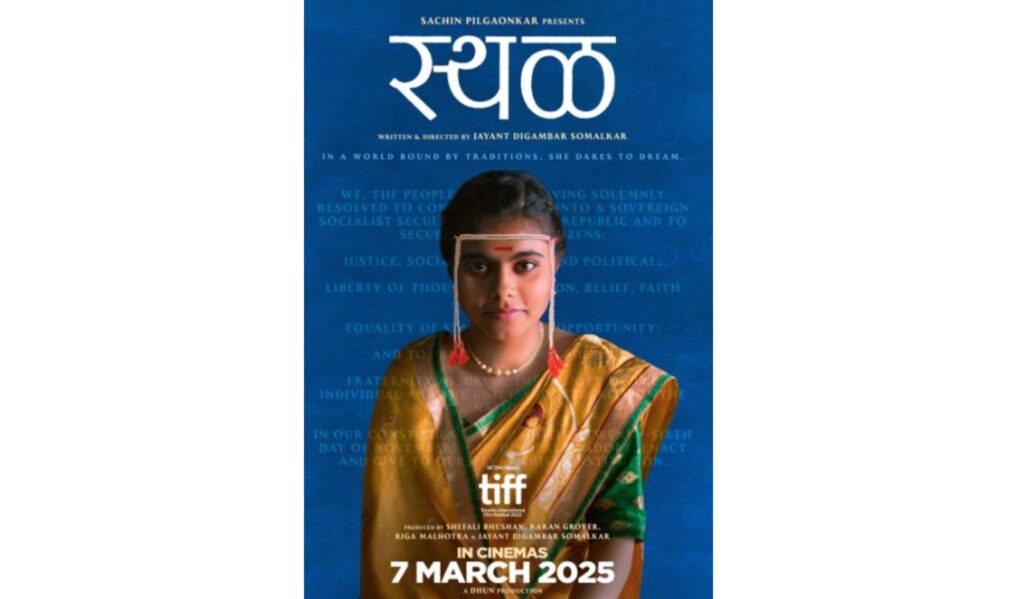Filmmaker Pratik Rajen Kothari’s Gujarati movie Auntypreneur has an unusual title. A person who carries out business is called entrepreneur. So, when an aunty becomes an entrepreneur, she becomes an ‘Auntypreneur’, as per the movie. What sets the protagonist of the film aside is the necessity angle of her business.
Auntypreneur takes place in today’s times in Malad, Mumbai in Poonam Co-Operative Housing Society. Jaswanti Gangani aka Jasu (Supriya Pathak Kapur) stays with her young tenant Raju (Parikshit Tamaliya) and maid Manda (Margi Desai). Her son Bhavik (Ojas Rawal) has been in Dallas, US, where he is doing very well.
Jasu once imagines her housing society about to be demolished by the municipality in her dream. Unfortunately, her nightmare comes true as the municipality gives an eviction notice to the CHS. It says that their builder hasn’t paid property tax worth Rs. 1.96 crores and has run away outside the country. Hence, if they don’t pay up the amount within four months, their building will be demolished.
Jasu doesn’t know how to raise such a high amount in such low time. This is when Raju advises her to start investing in share market, hope for high returns and pay the property tax to save Poonam CHS. Whether Jasu succeeds in her mission forms the rest of the story.
Auntypreneur has a serious storyline but the mood of the film is kept light-hearted and funny. The good part about this is that it provides feel-good family entertainment (except a few jokes aimed at adults at the start). The screenplay and dialogues ensure that there is no dull moment as Jasu goes about her mission. Once different women from the society start coming on board, the drama becomes interesting, also due to the bitter-sweet nature of relationship between a few characters.
One can guess the climax in films of this genre. Auntypreneur arrives at that in an interesting and somewhat nail-biting manner.
Supriya Pathak Kapur is the soul of the film. She is there in almost every scene and she makes per presence count through a flawless and lovable act. Parikshit Tamaliya, the only male in the team, also comes up with a fine act. Yukti Randeria succeeds in playing a modern girl of today’s era. Ojas Rawal makes his character count despite limited screen time.
Coming to the rest of Jasu’s team, Brinda Trivedi, Vaibhavi Bhatt, Kaushambi Bhatt, Margi Desai and Heena Jaikishan also chip in with good acts. Archan Trivedi as the building’s chairman Chaman Kaka is decent.
The cinematography (Vaishakh Manoharan), background score (Mihir Makwana), editing (Harsh Anandani) and the production design (Chirayu Bodas) go with the simple nature of the film.
Auntypreneur also comes with its share of negative points. The whole issue of your housing society being in danger of being demolished in four months should send the society members in panic. It should actually give you sleepless nights. But it doesn’t have such an effect on the members, except Jasu that too not in totality. It is, especially, surprising to see the male members of the society unperturbed by the situation.
Also, Jasu’s son Bhavik is shown to be super wealthy in the US. Hence, he alone could have paid a large share of the Rs. 1.96 crores, if not the entire amount. There is also a change of heart of one character that happens abruptly.
Overall: Auntypreneur is a feel-good family entertainer that should appeal to its target audience of family crowds.
Rating: 3 out of 5
Director: Pratik Rajen Kothari
Producers: Deepali Mhaiskar, Aryan Mhaiskar, Abhishek Jain and Amit Desai
Writers: Shreya Sheth, Shreya Jitan Singh and Abhinav Vaidya
Cast: Supriya Pathak Kapur, Parikshit Tamaliya, Ojas Rawal, Brinda Trivedi, Vaibhavi Bhatt, Kaushambi Bhatt, Margi Desai, Heena Jaikishan
Also read: Phule review: Pratik Gandhi excels in this decent period drama
